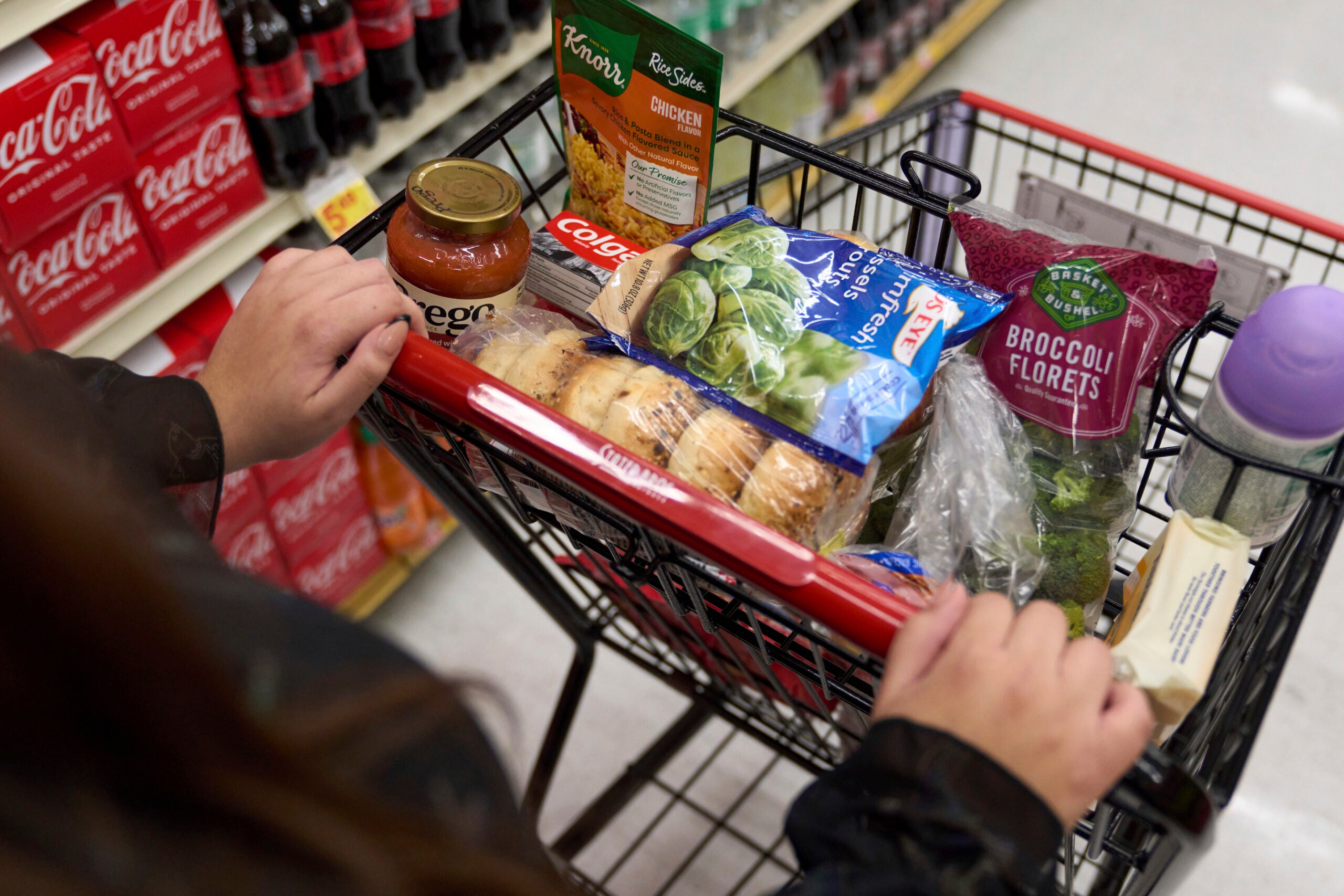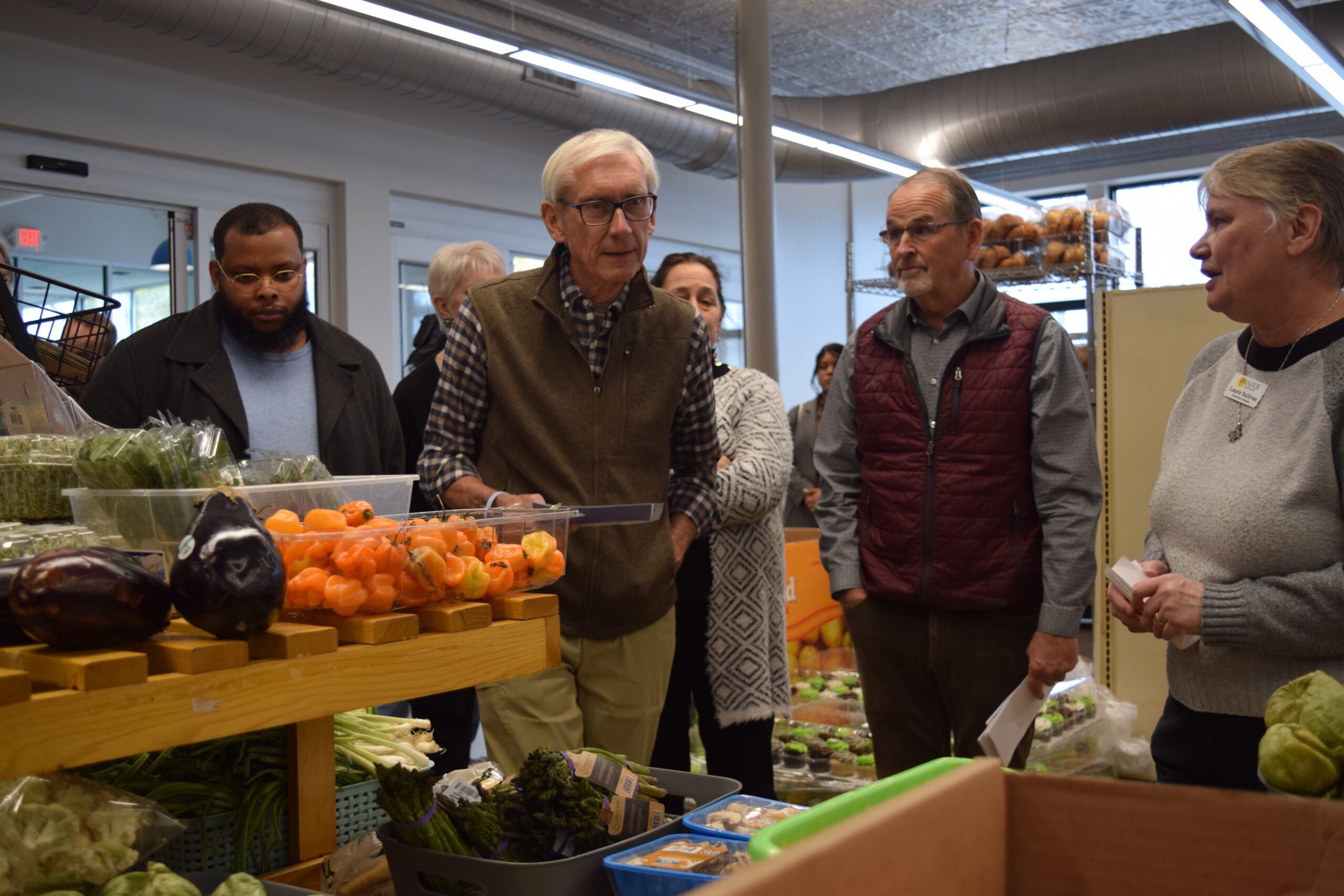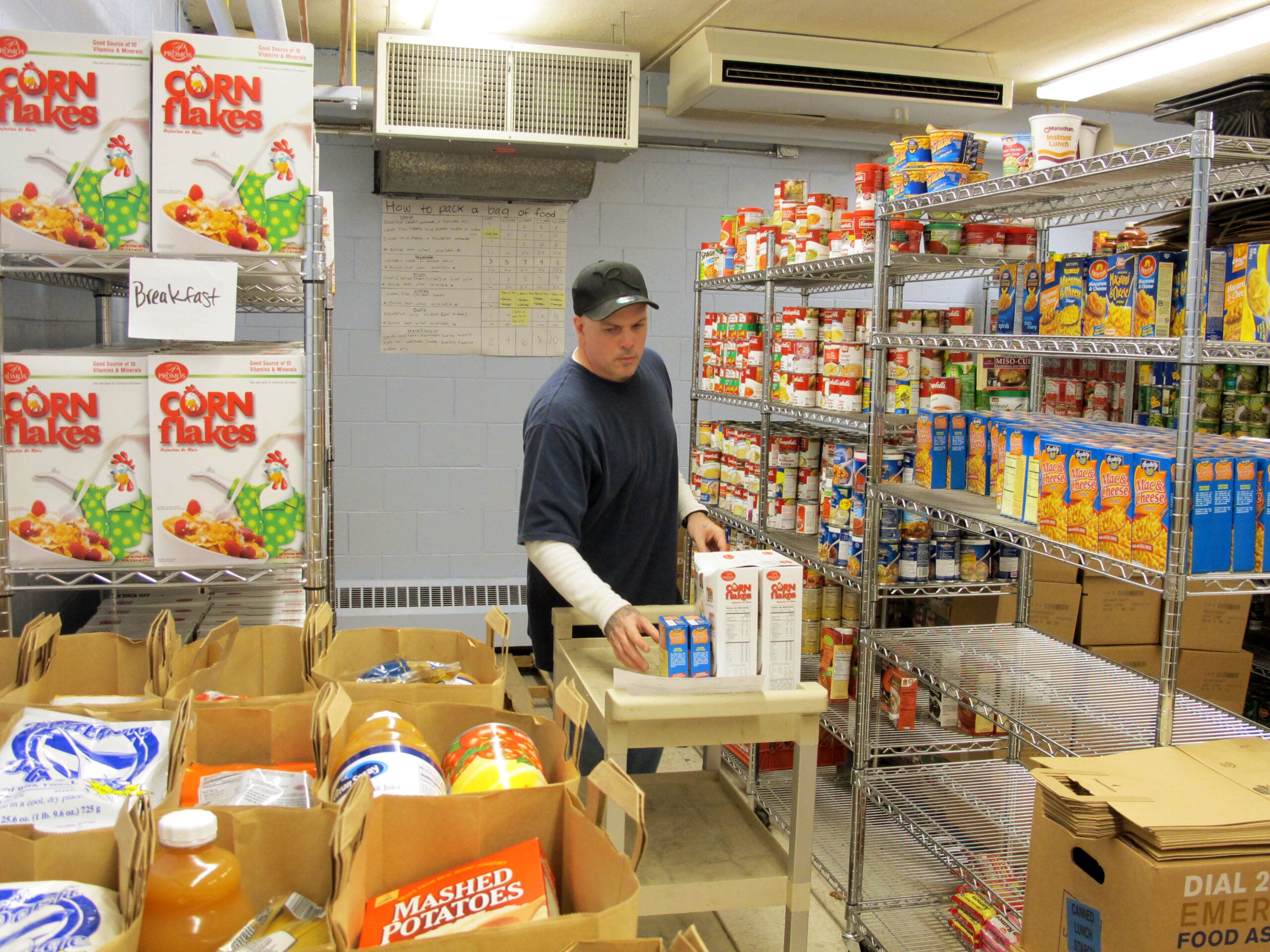As Republicans in Congress hammer out the details of a massive tax bill that would form a cornerstone of President Donald Trump’s agenda, the responsibility for food assistance could end up shifted to the states.
Republican members of Wisconsin’s congressional delegation back the move, saying it will improve efficiency and save the federal government about $300 billion. But advocates warn the savings will take place on the backs of needy people.
About 1 in every 8 Wisconsinites, or about 700,000 people, receives food assistance through the federal Supplemental Nutrition Assistance Program, or SNAP. Sixty percent of recipient families have children, according to the Center on Budget and Policy Priorities, a progressive national think tank.
News with a little more humanity
WPR’s “Wisconsin Today” newsletter keeps you connected to the state you love without feeling overwhelmed. No paywall. No agenda. No corporate filter.
The proposed SNAP cuts in Trump’s “Big Beautiful Bill” would come from imposing a work requirement and by making states shoulder the costs of a program historically covered by the federal government.
At the state Republican Party Convention over the weekend, Wisconsin’s GOP congressmen were united behind that massive bill, which would also cut Medicaid and shift tax policy while expanding funding for a wall on the U.S.-Mexico border.
Speaking to reporters, U.S. Rep. Derrick Van Orden, R-Prairie du Chien, said, “Any single American citizen that is legally receiving SNAP benefits should not see a single reduction in their SNAP.”
He argued that the changes would reduce double-payments from people receiving benefits across multiple states, and increase efficiency by cutting the program’s unnecessary overhead and bureaucracy.
U.S. Rep. Glenn Grothman, R- Glenbeulah, was among the members of the House Budget Committee who voted late Sunday night to advance the budget bill.
Alex Jacquez is chief of policy and advocacy at Groundwork Collaborative, a Washington, D.C.-based progressive think tank. He said the cost burden on Wisconsin could be as high as $340 million.
Jacquez and Democratic opponents of the bill argue that amounts to a tax cut giveaway to wealthy people, balanced on the backs of low-income families.
“This kind of funding is not in states’ budgets. And so they’re either going to need to scale back the number of recipients who get SNAP benefits, or they could opt out of the program entirely,” said Jacquez. “That is how the House Republicans achieved their savings to pay for a tax bill that is going to overwhelmingly benefit the wealthiest and large corporations.”
Jacquez roundly disagreed with Van Orden’s assessment that legal recipients wouldn’t lose benefits.
“Fewer people are going to get SNAP benefits. That is basically the whole ballgame here,” he said.
The total proposed cuts to SNAP would amount to about $300 billion, which would be the largest cut in the program’s history, according to an analysis by the Latino advocacy group UnidosUS.
But the overall budget bill has been subject to tremendous shifts as Republicans jockey over proposed cuts to Medicaid and certain tax proposals. If it passes the House, it faces steeper odds in the U.S. Senate. If it passes both chambers and is signed into law, the SNAP changes would take effect beginning in 2028.
Wisconsin Public Radio, © Copyright 2026, Board of Regents of the University of Wisconsin System and Wisconsin Educational Communications Board.







